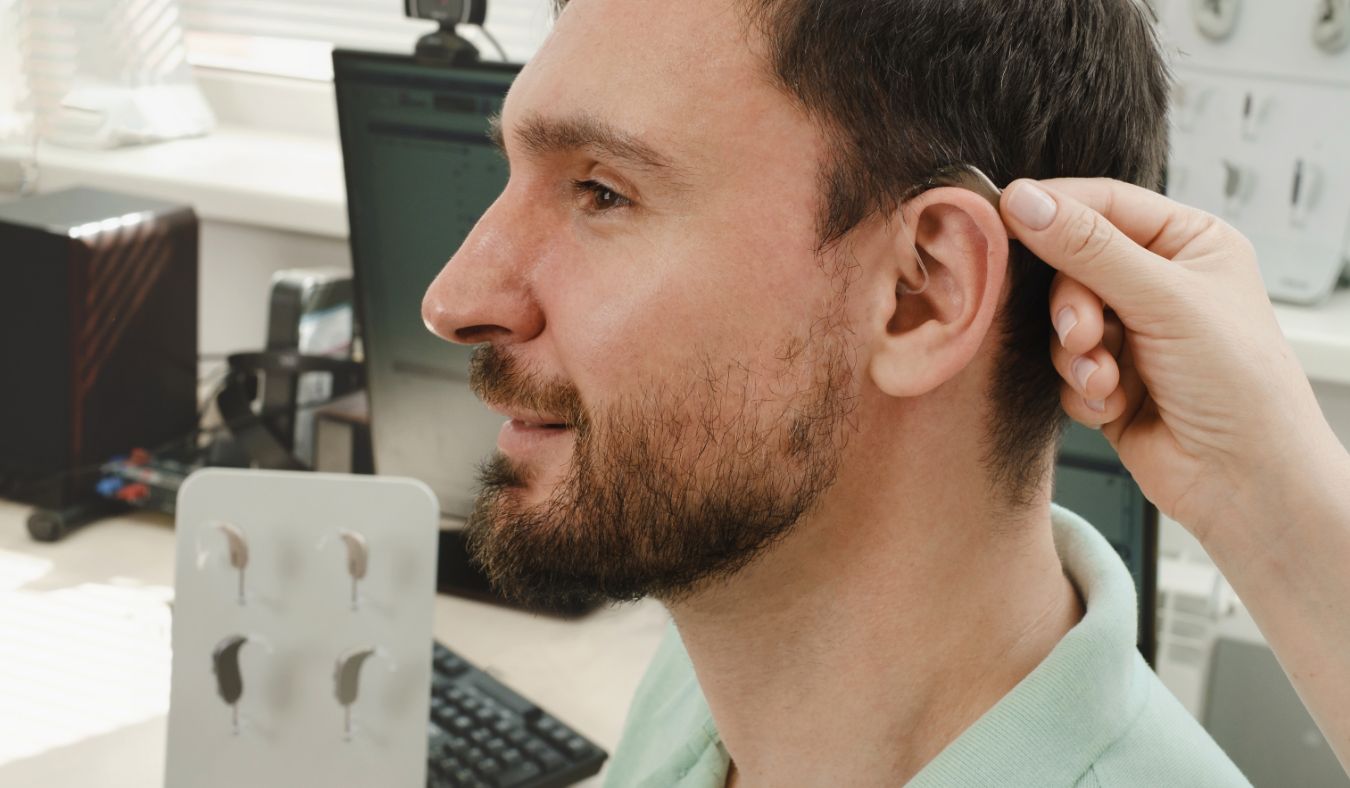How to Reduce Noise at Home for Better Communication
Home is often the place where most conversations happen, yet background

By: steven | December 23, 2024
Have you ever wondered how your air conditioning might affect your hearing aid performance? It’s not something that typically comes to mind, but it’s a relevant topic for many who rely on these devices. As individuals go about their day, shifting from one environment to another, several factors can influence how our hearing aids work. One of these factors is air conditioning, a common feature in many homes and workplaces. This will illuminate this interaction and provide useful insights for those seeking to optimize their hearing aid experience. What are some surprising ways in which something as commonplace as air conditioning can affect your ability to hear clearly and effectively?
The relationship between air conditioning and hearing aids is an interesting one. While it may seem unrelated, the cool, dry air produced by air conditioning units can actually influence your hearing aid’s performance. This is because the change in temperature and humidity levels can affect the internal workings of your device.
A study by the National Institutes of Health found that exposure to extreme temperature changes, like moving from a hot outdoor environment to a cool, air-conditioned room, can cause condensation within hearing aids. This sudden shift can lead to moisture build-up inside your device which may impact its functionality. To lessen this effect, consider giving your hearing aids time to adjust when transitioning between different environments. For example, upon entering an air-conditioned space after being outside in the heat, remove your hearing aids and allow them to acclimate before putting them back in. This simple step could help maintain optimal performance of your devices amidst varying conditions.
Changes in temperature and humidity can noticeably affect your hearing aid’s performance. These environmental factors can impact the physical components of your device, potentially altering its functionality.
Specifically, high humidity levels and extreme temperatures can cause internal condensation within your hearing aid. This moisture build-up may lead to decreased sound quality or even temporary malfunction of the device. As winter sets in and temperatures drop, you might notice a change in your hearing aid’s performance.
Cold, dry air can cause static electricity to build up in your hearing aids, which may lead to a crackling or buzzing sound. Additionally, low humidity levels during winter can also affect the battery life of your devices. To ensure optimal performance of your hearing aids during these colder months, consider using a dehumidifier and storing them in a warm place when not in use. Don’t hesitate to consult with your audiologist for more personalized advice tailored to your specific needs and circumstances.
In addition to temperature and humidity, changes in altitude can also affect your hearing aids. Whether you’re taking an elevator ride up a tall building or hiking up a mountain trail, changes in altitude can influence the performance and battery life of your devices.
Changes in altitude can affect the performance of hearing aids due to fluctuations in air pressure. As altitude increases, air pressure decreases, which can lead to changes in the way sound is transmitted and processed by the hearing aid. This alteration in air pressure may cause discomfort or distortions in sound perception for individuals wearing hearing aids. Additionally, changes in altitude can impact the functioning of the hearing aid’s microphone and amplifier, affecting overall sound quality. It’s essential for individuals traveling to high-altitude areas to be aware of these potential effects and to consult with their audiologist for guidance on adjusting their hearing aids accordingly. Proper adjustments and maintenance can help mitigate any adverse impact on hearing aid performance during altitude changes, ensuring optimal support for individuals with hearing loss.
The signs may not be immediately obvious. You might notice a decrease in sound quality or find that your battery life isn’t lasting as long as it usually does. These could be indications that the dry, cool air from your air conditioning is affecting the performance of your hearing aids. Air conditioning, a staple in many homes and workplaces, can have an unexpected impact on your hearing aid battery life. The cool, dry air that these systems produce can affect the longevity of your device’s power source.
Air conditioning units work by removing moisture from the air, creating a drier environment. This lack of humidity can cause hearing aid batteries to drain faster than usual, leading to a shorter lifespan. It’s important to note that this doesn’t just apply to air conditioning – any environment with low humidity levels could potentially have the same effect. Here are some tips to help manage this:
It’s always best to consult with an audiologist if you suspect any issues with your devices, as they can provide expert advice and solutions tailored to your specific needs.
If your hearing aid has been affected by air conditioning or humidity, how can you manage these effects? One simple yet effective strategy is to give your hearing aids time to adjust when moving between different environments. If you’ve been outside in the heat and are entering an air-conditioned room, consider removing your hearing aids for a few minutes to allow them to acclimate. Regular maintenance and cleaning can also help prevent moisture build-up caused by air conditioning. Make sure to dry your hearing aids thoroughly after cleaning, and consider using a dehumidifier overnight as this will pull out any extra moisture from your hearing aids. Finally, consult with your audiologist regularly. They can provide advice on the steps you can take to manage your hearing aids, make adjustments or professionally clean your hearing aids.
By taking these steps, you can ensure that your hearing aids continue to function effectively, regardless of the influence of air conditioning.
Just like air conditioning, cooler climates can also influence how well your hearing aids function. Cooler temperatures can affect the battery life and overall performance of your hearing aids. Batteries may drain faster in cold weather, and the sound quality might change. To combat this, consider storing your hearing aids in a warm place when not in use. Also, keep spare batteries on hand in case your batteries are drained, and you need to change them for optimal use throughout the day.
When wearing hearing aids, you might have different features that may be affected by air conditioning or different temperatures. Your hearing aid is more than just a tool for amplifying sound; it’s an advanced piece of technology designed to enhance your auditory experience. Each model has unique features that cater to different types of hearing loss and lifestyle needs.
One of the main functions of most hearing aids is noise reduction. This feature allows you to focus on what you want to hear by minimizing background noise. For example, if you’re in a noisy restaurant or a crowded park, the noise reduction feature can make conversations more audible by reducing the surrounding sounds.
Another important feature is directional microphones. These are designed to pick up sounds coming from specific directions, usually in front of you. This can be particularly helpful in situations where you need to concentrate on one source of sound, like when having a conversation with someone across the table.
After learning about the various factors that can influence your hearing aid’s performance, it’s important to recognize when it might be time to seek professional help. If you notice consistent issues with your hearing aids that aren’t resolved by basic troubleshooting, it may be time to consult an audiologist.
An audiologist can provide expert advice and solutions tailored to your specific needs. They can help identify any underlying issues and guide you on the best course of action. Whether it’s adjusting settings, recommending maintenance practices or suggesting a new device altogether, an audiologist is there to ensure you get the most out of your hearing aids.
The impact of air conditioning on hearing aid performance can be significant, but with the right information and support, you can continue to enjoy optimal hearing. Crystal Clear Hearing Center is here to help in Placentia and Blue Jay, CA. Our team of dedicated audiologists understands the nuances of these devices and how environmental factors like air conditioning can affect their performance.
If you’ve noticed changes in your hearing aid functionality or have questions about maintaining optimal performance in different environments, don’t hesitate to reach out. We’re committed to helping you tackle these challenges so that your focus remains where it should be – on enjoying clear, quality sound every day. We look forward to assisting you with all your hearing needs.
Tags: hearing aid tips

Home is often the place where most conversations happen, yet background
By: admin | January 19, 2026

Your hearing affects more than just your ability to follow conversations
By: admin | December 21, 2025

Sometimes, hearing loss doesn’t show up the way you might expect. You
By: admin | September 25, 2025
